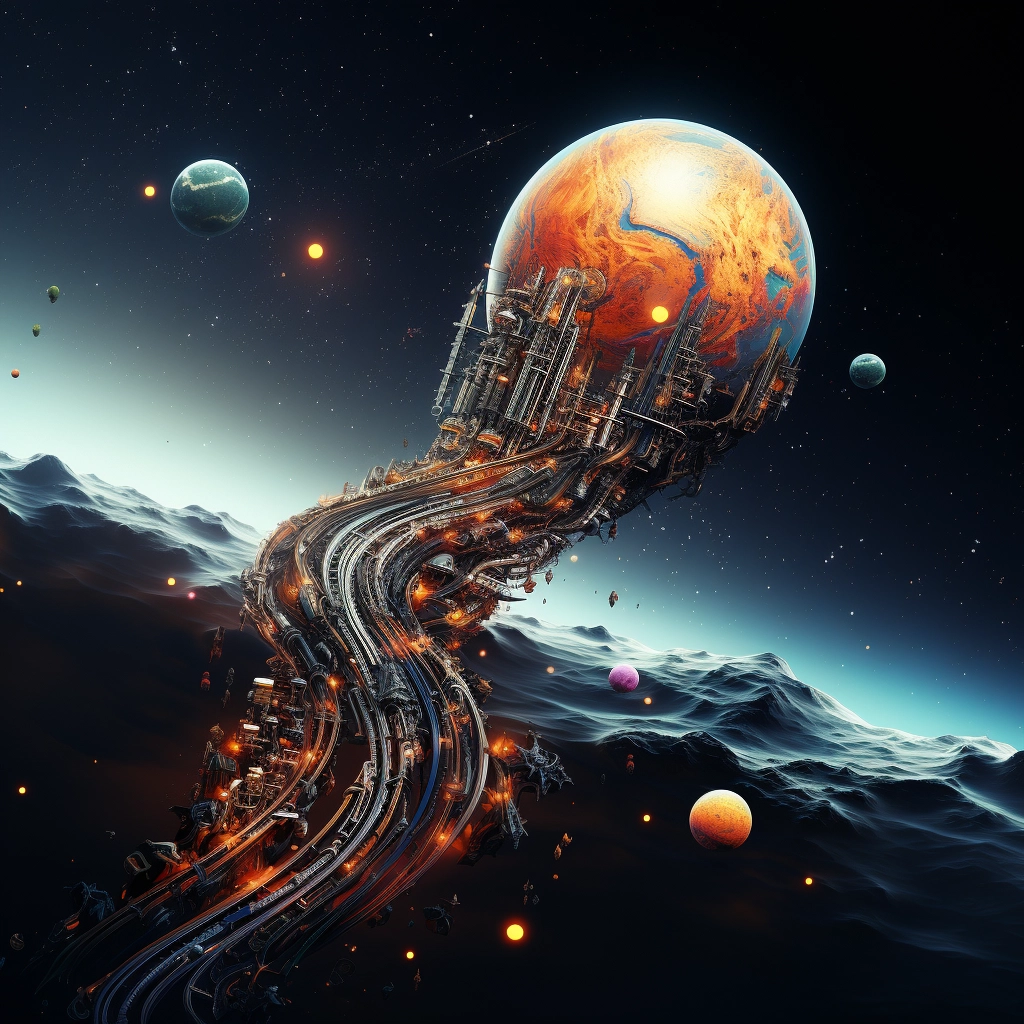
- By : lunamoonai
- Website
The Role of Artificial Intelligence in Steering the New Era of Space Exploration
The dawn of the 21st century has witnessed an exponential surge in technology, manifesting the once-conceived science fiction of artificial intelligence (AI) into a tangible reality. AI’s infiltration into various sectors has reimarkedly reshaped the operational dynamics, methods, and efficiencies. Among the numerous frontiers AI has ventured into, space exploration emerges as a particularly captivating arena, showcasing a symbiosis between the cosmic unknown and machine intelligence. This article endeavors to elucidate the multifaceted role of AI in heralding a new epoch in space exploration, emphasizing its potential, challenges, and future prospects.
Navigating the Heavens: AI as the Celestial Compass
Space exploration, characterized by its inherent risk, vast distances, and inscrutable environments, demands more than human fortitude and ingenuity. It requires the precision, autonomy, and scalability that AI uniquely offers. From autonomous navigation of spacecraft to the analysis of vast celestial data sets, AI is the invisible hand steering humanity’s quest to explore the universe.
Autonomous Systems and Robotics
AI-driven autonomous systems and robotics stand at the forefront of this exploration. Mars rovers such as Curiosity and Perseverance are prime exemplars, equipped with AI to navigate the Martian terrain, identify geological features, and conduct experiments with minimal human oversight. These robotic explorers act as our surrogates, eyes, and hands in environments too perilous or distant for human presence.
The AI algorithms embedded within these machines enable real-time decision-making, path planning, and hazard avoidance. Moreover, as these autonomous systems encounter the unpredictable and unknown, they learn and adapt, enhancing their operational efficiency in future endeavors.
Data Analysis and Interpretation
Beyond navigation and robotics, AI plays a pivotal role in the analysis and interpretation of celestial data. Space expeditions yield an astronomical volume of data, from star maps to planetary images. The manual analysis of this data is not only impractical but impossible within reasonable time frames.
Here, AI, with its machine learning subsets, comes into play. AI algorithms can swiftly sift through this data, identifying patterns, anomalies, and insights at a pace and depth unattainable by human efforts alone. Such capabilities are invaluable in detecting exoplanets, understanding cosmic phenomena, and even searching for extraterrestrial intelligence.
AI in Enhancing Communication and System Efficiency
Effective communication across the vastness of space is pivotal. Deep Space Networks facilitate the exchange of data between Earth and interplanetary spacecraft. AI’s role in optimizing these networks, enhancing bandwidth allocation, and predicting system failures before they occur underscores its significance in ensuring mission success.
Moreover, AI contributes to the operational efficiency of space missions. Through predictive maintenance, AI algorithms can anticipate component wear and tear, facilitating pre-emptive repairs and reducing the risk of catastrophic failures. This not only extends the lifespan of space assets but also ensures the safety and reliability of missions.
The Challenges and Ethical Considerations
Despite its potential, the integration of AI in space exploration is not devoid of challenges. The chief among these is the concern over autonomy. As AI systems take on more decision-making responsibilities, questions arise about control, error margins, and ethical implications in scenarios where human lives could be at risk or when making contact with potential extraterrestrial intelligence.
Ensuring the reliability and security of AI in space missions is another Herculean task. AI systems must be foolproof against not only technical failures but also cybersecurity threats, a non-negligible factor given the increasing reliance on AI.
Further, there exists the imperative of keeping human expertise and oversight integrated within the loop of AI-driven operations. This human-AI symbiosis ensures that, while AI can enhance efficiency and capabilities, human judgment remains paramount, particularly in critical decision-making processes.
Vis-à-Vis the Horizon: The Future of AI in Space Exploration
Looking forward, the prospects of AI in space exploration are limitless. With advancements in AI and machine learning, future missions could see more sophisticated autonomous systems, capable of conducting complex scientific research, deep-space repairs, and even construction on extraterrestrial surfaces autonomously.
The evolution of AI towards enhancing spacecraft design and development is another frontier. AI-driven simulations and digital twins could revolutionize spacecraft engineering, enabling the design of more efficient, resilient spacecraft, and reducing the time from conceptualization to launch.
Moreover, AI could democratize space exploration. By reducing costs, increasing safety, and enhancing mission success rates, AI opens the possibility for more nations and private entities to partake in space exploration endeavors, fostering a new era of international cooperation and innovation in space.
Conclusion
The intersection of AI and space exploration is fostering a paradigm shift in how humanity ventures into and understands the cosmos. While hurdles exist, the synergy between human ingenuity and artificial intelligence promises not only to surmount these challenges but to propel us into a future where the mysteries of the universe become within our reach. As we stand on the brink of this new era, it becomes increasingly clear that AI will not only be a tool in space exploration but a quintessential partner in our cosmic journey.
Engaging with AI in space exploration is not merely about technological advancement but about charting a new course for humanity’s future, a testament to our relentless pursuit of knowledge and our undying spirit of exploration. As we harness the potential of artificial intelligence, we edge closer to unraveling the cosmos’s secrets, ensuring that the final frontier is not a boundary but a gateway to infinite possibilities.
